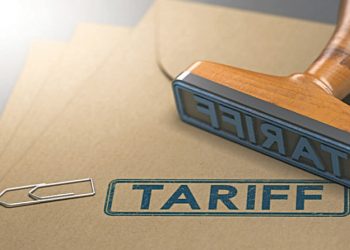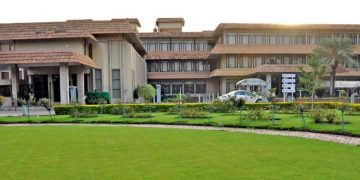ISLAMABAD: Governor State Bank of Pakistan (SBP), Reza Baqir has asserted that the foreign exchange reserves of the central bank would reach the historic high once the country receives $2.77 billion allocations on August 23 from International Monetary Fund’s (IMF).
Appreciating the IMF’s step for providing global liquidity, the SBP Governor said it would help improve country’s reserves and have a very positive impact on various economic indicators.
He said that the inclusion of $2.77 billion would also help enhance the net international reserves of the country, “which is also positive sign for the country’s economy”.
Referring to apprehensions raised by some of the economists about rising trend of Current Account Deficit, Reza Baqir said the deficit would likely to remain at 2-3% of GDP during current year.
“Moderate increase is a good sign for economy provided that it should remain sustainable”, he said adding, “We were in deep scramble in 2017-18 when our CAD went up to $19 billion or 6% of GDP”.
He further said there were three signs when the economy could be in trouble due to rising current account deficit. “In Pakistan’s case, not even one of the three alarm bells is ringing,” he said.
The SBP governor went on to explain that the first thing to watch out for is the level of the current account deficit. “In the past, we encountered problems when our current account deficit reached 6% of GDP. You may recall that after that, our reserves experienced a loss that forced us to go to the IMF,” he added.
The other possible alarm bell, he said, is if the current account deficit was rising and the exchange rate is not adjusting in accordance, especially in the case of countries that have a market-based exchange rate.
“This is an alarm bell because this is a natural phenomenon that when outflows are greater than inflows, and imports are increasing disproportionately to exports, the exchange rate sees an adjustment because it is a market mechanism,” he added.
He said that third “alarm bell” pertains to low reserves. “However, our reserves are increasing,” he added. Baqir said that therefore, one must remember that these alarm bells indicate whether a current account deficit is unsustainable and in the past, when Pakistan had unsustainable levels, all these warning signs were there.
Elaborating the reasons behind a sustainable growth, the governor said Pakistan’s exchange rate was now a market based and that its forex reserves were also going up. Furthermore, he said the IMF also accepted that Pakistan had showed tremendous performance in increasing the net international reserves
It is pertinent to mention here that the Board of Governors of the IMF had approved a general allocation of Special Drawing Rights (SDRs) equivalent to US$650 billion (about SDR 456 billion) to boost global liquidity.
The allocation would benefit all members, address the long-term global need for reserves, build confidence, and foster the resilience and stability of the global economy. It would particularly help most vulnerable countries struggling to cope with the impact of the COVID-19 crisis.

































